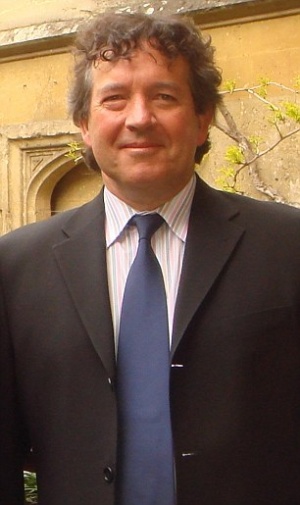Stephen Frost
(Physician, whistleblower) | |
|---|---|
 | |
| Born | 1947 |
| Exposed | UK Army/Fraud |
| Interests | David Kelly/Death |
Dr Stephen Frost is a doctor who expressed his doubts about the official narrative of the death of Dr David Kelly.
Contents
Career
An experienced radiologist, Dr Stephen Frost had worked for the Ministry of Defence for 20 years until his contract was terminated by text while on holiday in 2013, after he called for a police inquiry into disappearance of painkillers at a British Army base.[1]
Employment tribunal
In January 2017, an employment tribunal in Manchester was told the Ministry of Defence dismissed Dr Frost to cover up the disappearance of a large quantity of morphine from Weeton army base. After his contract was terminated, “Stasi-like” tactics were used to try to “sink him without trace”, including suggesting that he was a conspiracy theorist and a Kremlin sympathiser, it was claimed.
In his closing submissions to the tribunal, Frost’s barrister, John Hendy QC, said his client should be treated as a whistleblower who lost his job because the MoD wanted to suppress his calls for a police inquiry into the disappearance of the strong painkillers from Weeton barracks in Lancashire. Hendy said Frost’s concerns had gone as far as the desk of the then defence minister Anna Soubry, but she was wrongly told that a full investigation had taken place.
Frost raised concerns about 2,400mg of the class A drug that went missing from Weeton before he took up his post and wanted to tell the police about the tablets. He was dismissed by text and email while on holiday in 2013 without being told why. Hendy said:
- “The only explanation of why there was no inquiry into the truth of what happened to the drugs is that the MoD … did not want such an inquiry, the outcome of which could be damaging to Weeton and MoD management. The only person who had called for such an inquiry and supplied information tending to show that criminal offences … might have occurred was Dr Frost.” Hendy said Frost had nothing to do with the drugs: “Nonetheless he lost his job and probably his career. The question is why?”
Dr Frost’s barrister reminded the tribunal of what he called “malicious” emails written by senior officers after he was dismissed. He said:
- “These … illustrate the animus of the MoD towards Dr Frost, an animus which can only reasonably be explained by the desire to remove a whistleblower."
Whistleblowers UK
Outside the tribunal, the campaign group Whistleblowers UK criticised the MoD for its approach to the case:
- “Dr Frost’s fight to address the injustice done to him has taken over three years to bring to court. The case is yet another example of an ingrained determination on the part of our public sector institutions to silence and punish the whistleblower, rather than confront the wrongdoing that he or she may have exposed.
- “These institutions spend untold amounts of taxpayers’ money – without any real accountability – pursuing policies of victimisation and retaliation against those who can ill afford to fight back.
- “This case is highlights the extreme lengths to which employers can and will go to avoid dealing with serious allegations of internal wrongdoing, using the tactic of depriving someone of his livelihood and besmirching of their character.
- “During this case, Dr Frost has had to face down many cruel and crude attempts to cast doubt on his integrity. This really has been a case of David versus Goliath.
- “It is troubling, and of significant public interest, that the same vigour with which they have sought to ruin Dr Frost has not been applied to establishing the truth behind the apparent ‘disappearance’ of a significant quantity of class A drugs.”[2]
Judgment
In August 2017, Employment Judge Pauline Feeney dismissed his claim saying the three decision-makers in the doctor’s case had no knowledge of the whistle-blowing allegations at the time of their decision:
- “The reasons for his treatment were entirely to do with the perceived failing and his status had no connection with any alleged whistleblowing.”
The tribunal found that although Dr Frost did make a protected disclosure which he believed showed a criminal offence had been committed, the detriment he subsequently suffered was not a result of that disclosure and therefore his claim failed.
The tribunal did express concern, however, about the way Dr Frost was dismissed, including the way the decision was rushed:
- “In addition, the Betsi Cadwaladr incident shows the respondent in a poor light, over-reacting to the in formation about the claimant’s activities and the very careless way in which Brigadier Simpson replied to Betsi Cadwaladr University Health Board,” said the Judge.[3]
Documents by Stephen Frost
| Title | Document type | Publication date | Subject(s) | Description |
|---|---|---|---|---|
| Document:The Death of David Kelly and the "Sexed Up" WMD Report | article | 21 February 2008 | David Kelly Dodgy Dossier Iraq Inquiry David Kelly/Death/Hutton Inquiry Andrew Gilligan Alastair Campbell September Dossier 2003 Iraq War David Kelly/Death | |
| File:DrFrostMemorial.pdf | report | 14 September 2010 | David Kelly/Death/Hutton Inquiry David Kelly/Death | A challenge to the Hutton Inquiry's report by a team of doctors demanding a full inquest in light of new evidence. |
Event Participated in
| Event | Start | End | Location(s) | Description |
|---|---|---|---|---|
| WEF/Annual Meeting/2012 | 25 January 2012 | 29 January 2012 | Switzerland World Economic Forum | 2113 guests in Davos |